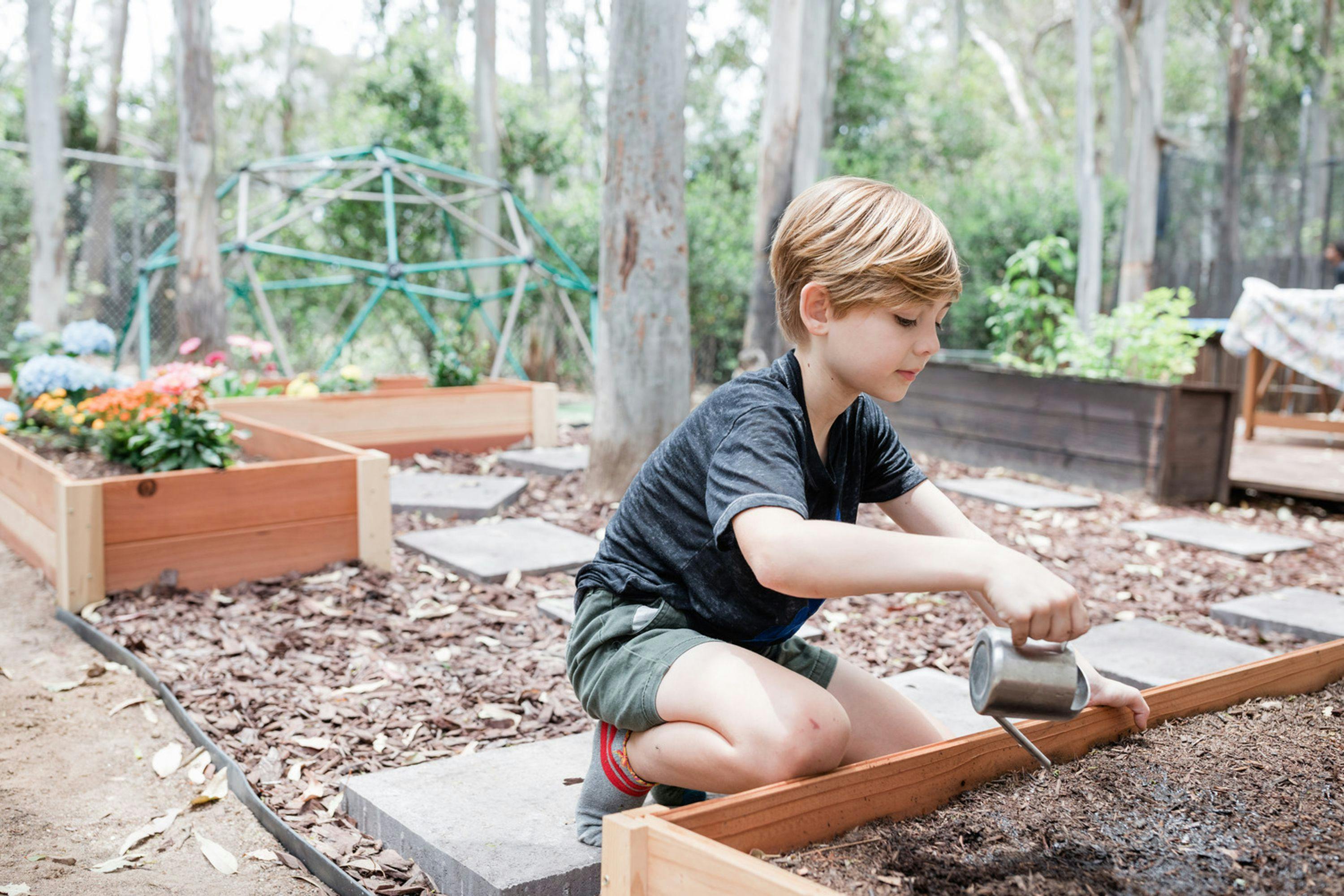Busy Work vs. Meaningful Work
How to distinguish and think about busy work vs. meaningful work while doing Montessori at home
Jenna Wawrzyniec
Content Specialist
Working at home with my children, whether for summer or extended holiday breaks, can sometimes be summed up as “survival mode” while we sort out evolving rhythms and routines. Knowing what I value about Montessori learning, it helps me to shift from reactive mode to responsive mode: How can I restore a sense of calm and connection through these transitions?
In shifting my energy towards this goal of preparedness, I recently found myself in the middle of two parental pressure traps. On the one hand, having my children home from school for an extended period is an opportunity to slow down, be present, and give beneficial breathing room to just play. On the other hand, there is a clear yearning for enforcing structure and supporting acquisition of knowledge in these foundational academic years. Then I remembered, this is exactly why I love Montessori.
Academics are neither forced nor rushed; My children freely pursue their interests, but their desire to learn is not relegated to a world of pretend — and they are trusted to engage in meaningful work. There is no need to divisively choose between unstructured and structured, because children have a need for both — and Montessori solved for this a century ago on the basis that our children are capable. They are capable in the most holistic sense. They are capable thinkers, doers, creators, contributors, leaders, and learners.
The days when I am prepared, treat them as capable, and guide them towards meaningful work are the days when we begin to replenish our cups. The days when I am not prepared, understate their capabilities, and shield them from meaningful work in place of “busy work”— or total abandon to any guidance — are the days that end up draining our cups.
What is meaningful work?
It’s work that gives our children a sense of purpose, allows them to more deeply pursue their interests, and directly answers their current developmental needs — whether they are academic or not. For my toddler, meaningful work looks more like mastering movement. For my preschooler, that looks like exploring a booming interest in mathematical concepts.
I don't determine what is meaningful to them; they do, and I work daily to understand this through my own observations and intentional engagement. Our children are constantly sending signals to us that can cue us into the things that are meaningful to them. Even when my son made an enormous mess while I was in another room the other day, that was a mess that showed an un-met need. The dozens of house items he dunked in a tub of water were a desire to analyze which items sink and which items float.
Busy work is anything I toss at them in hopes of entertaining them without attempting to connect it to their current interests or developmental needs. It’s a well-meaning quick guess. And while there’s absolutely nothing wrong with these “trial and error” moments, it proves worth the extra prep to distinguish their interests from my assumptions. When their inner-most needs are met, I can better meet my needs.
Montessori at home and the concept of being a prepared parent is not about “doing it all.” It’s about finding our middle ground.
Jenna Wawrzyniec
Jenna is a trained journalist and writer whose parenting journey transformed after implementing Montessori at home with her three children. She is a passionate advocate for bridging Montessori to the mainstream as a means to build community, empower parent-child relationships, and honor learning as the lifelong journey that it is.
Sign up for our newsletter
Get started with our community today! Sign up for resources.
